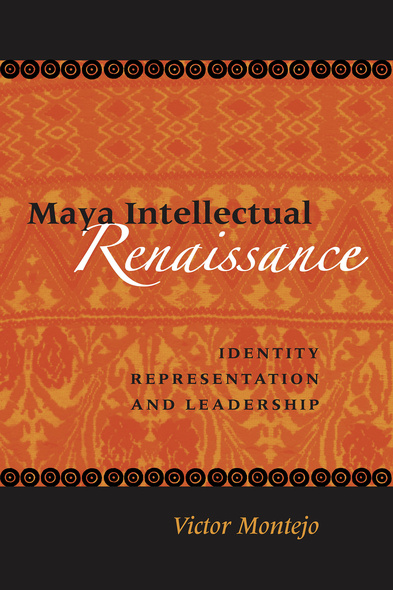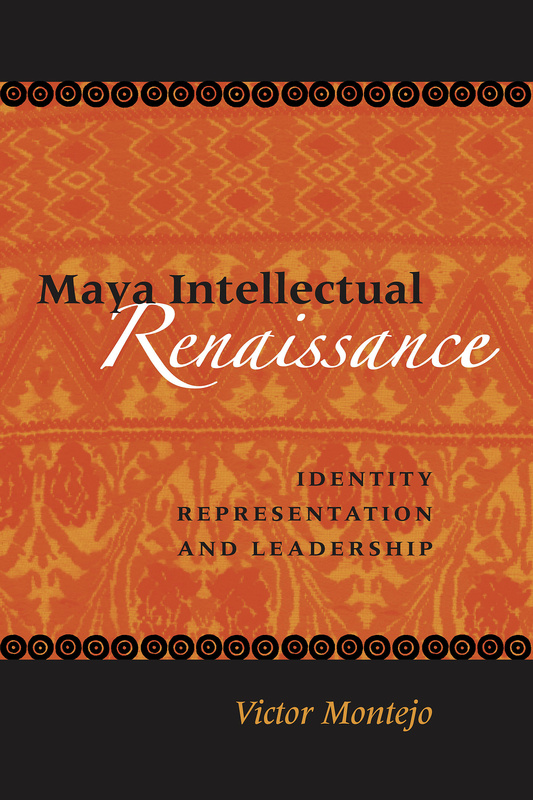
Maya Intellectual Renaissance
Identity, Representation, and Leadership
When Mayan leaders protested the celebration of the Quincentenary of the "discovery" of America and joined with other indigenous groups in the Americas to proclaim an alternate celebration of 500 years of resistance, they rose to national prominence in Guatemala. This was possible in part because of the cultural, political, economic, and religious revitalization that occurred in Mayan communities in the later half of the twentieth century. Another result of the revitalization was Mayan students' enrollment in graduate programs in order to reclaim the intellectual history of the brilliant Mayan past. Victor Montejo was one of those students.
This is the first book to be published outside of Guatemala where a Mayan writer other than Rigoberta Menchu discusses the history and problems of the country. It collects essays Montejo has written over the past ten years that address three critical issues facing Mayan peoples today: identity, representation, and Mayan leadership. Montejo is deeply invested in furthering the discussion of the effectiveness of Mayan leadership because he believes that self-evaluation is necessary for the movement to advance. He also criticizes the racist treatment that Mayans experience, and advocates for the construction of a more pluralistic Guatemala that recognizes cultural diversity and abandons assimilation. This volume maps a new political alternative for the future of the movement that promotes inter-ethnic collaboration alongside a reverence for Mayan culture.
This striking project will be of wide interest to scholars and students concerned with social movements and indigenous rights. The topic is important and timely, and the author is one of the most respected Mayan intellectuals and activists.
Victor Montejo is Professor of Native American Studies at the University of California, Davis.
- Acknowledgments
- Introduction
- Chapter 1. Maya Identity and Interethnic Relations
- Chapter 2. Pan-Mayanism: The Complexity of Maya Culture and the Process of Self-Representation
- Chapter 3. Representation via Ethnography: Mapping the Maya Image in a Guatemalan Primary-School Social-Studies Textbook
- Chapter 4. The Multiplicity of Maya Voices: Maya Leadership and the Politics of Self-Representation
- Chapter 5. Truth, Human Rights, and Representation: The Case of Rigoberta Menchú
- Chapter 6. The Ethnohistory of Maya Leadership
- Chapter 7. Theoretical Basis and Strategies for Maya Leadership
- Chapter 8. Maya Ways of Knowing: Modern Maya and the Elders
- Chapter 9. Leadership and Maya Intellectuality
- Chapter 10. Indigenous Rights, Security, and Democracy in the Americas: The Guatemalan Situation
- Chapter 11. The Twenty-first Century and the Future of the Maya in Guatemala
- Notes
- Bibliography
- Index




